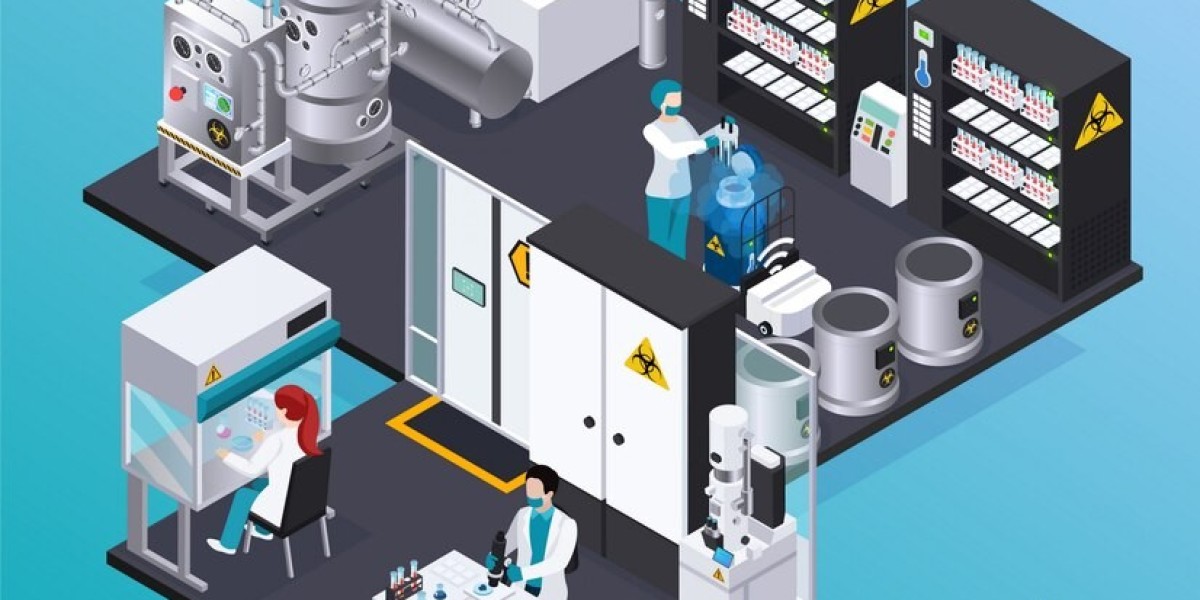A bioreactor is a specialized vessel designed to support and optimize biological reactions under controlled conditions. It plays a crucial role in various industries, including pharmaceuticals, food processing, biofuel production, and environmental management. By precisely regulating factors such as temperature, pH, oxygen levels, and nutrient availability, a bioreactor ensures efficient microbial and cellular growth, making it an indispensable tool in large-scale biological manufacturing.
Types of Bioreactors
Different types of bioreactors are used depending on the application and industry requirements:
Batch Bioreactor – Operates as a closed system where microorganisms or cells grow in a fixed volume of nutrient medium until the process is completed.
Continuous Bioreactor – Allows a constant supply of nutrients and removal of waste, enabling ongoing production without interruption.
Fed-Batch Bioreactor – A hybrid model where fresh nutrients are periodically added to prolong cell growth and enhance productivity.
Airlift Bioreactor – Uses air bubbles for circulation and oxygenation, commonly applied in biofuel production and wastewater treatment.
Photobioreactor – Designed for cultivating photosynthetic organisms like algae, essential in biofuel, food, and pharmaceutical industries.
Key Components of a Bioreactor
A bioreactor consists of several crucial components that ensure optimal biological activity and efficiency:
Agitation System – Mixes the medium to distribute nutrients and oxygen evenly.
Aeration System – Supplies oxygen to support aerobic biological reactions.
Temperature Control System – Maintains the ideal temperature for cell growth and biochemical reactions.
pH and Nutrient Sensors – Monitor and adjust environmental conditions to maximize efficiency.
Sterilization System – Prevents contamination and ensures the purity of the final product.
Applications of Bioreactors
Pharmaceutical Industry
A bioreactor is extensively used in the production of vaccines, antibiotics, and therapeutic proteins. It provides a controlled environment for cultivating bacteria, yeast, or mammalian cells to manufacture essential medicines.
Food and Beverage Industry
Fermentation-based food production, such as yogurt, cheese, beer, and wine, relies on bioreactors to ensure consistency, enhance flavor, and improve efficiency.
Biofuel Production
Microorganisms and algae grown in bioreactors contribute to sustainable biofuel production, including biodiesel and bioethanol, reducing dependence on fossil fuels.
Wastewater Treatment
Microbial bioreactors help break down organic waste and pollutants, improving water quality and promoting environmental sustainability.
Advantages of Bioreactors
Controlled Environment – Ensures stable and optimized conditions for biological reactions.
Scalability – Suitable for both research-level experiments and large-scale industrial production.
High Efficiency – Enhances production by optimizing nutrient utilization and waste removal.
Eco-Friendly Solutions – Supports sustainability through biofuel production and waste treatment.
Conclusion
The bioreactor is a revolutionary innovation in biotechnology and industrial applications. Its ability to regulate and enhance biological processes has transformed sectors such as pharmaceuticals, food production, renewable energy, and environmental conservation. As technology advances, bioreactors will continue to play a vital role in improving efficiency, sustainability, and large-scale biological manufacturing across multiple industries.









